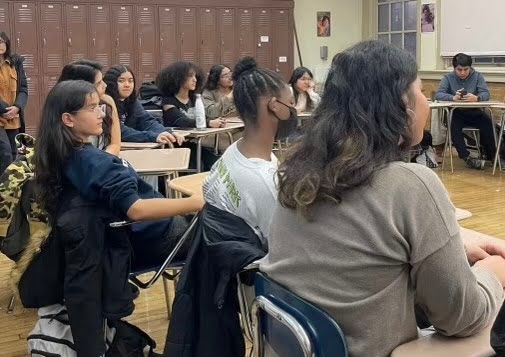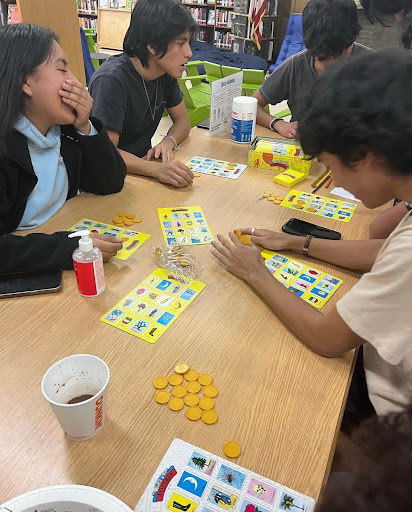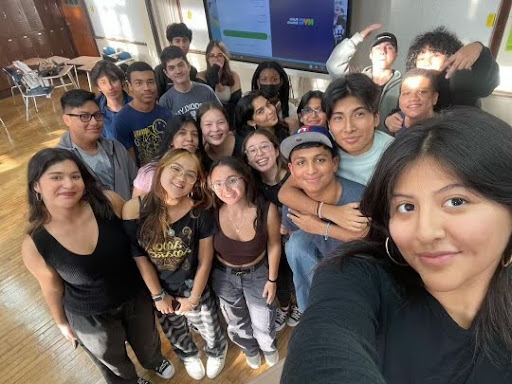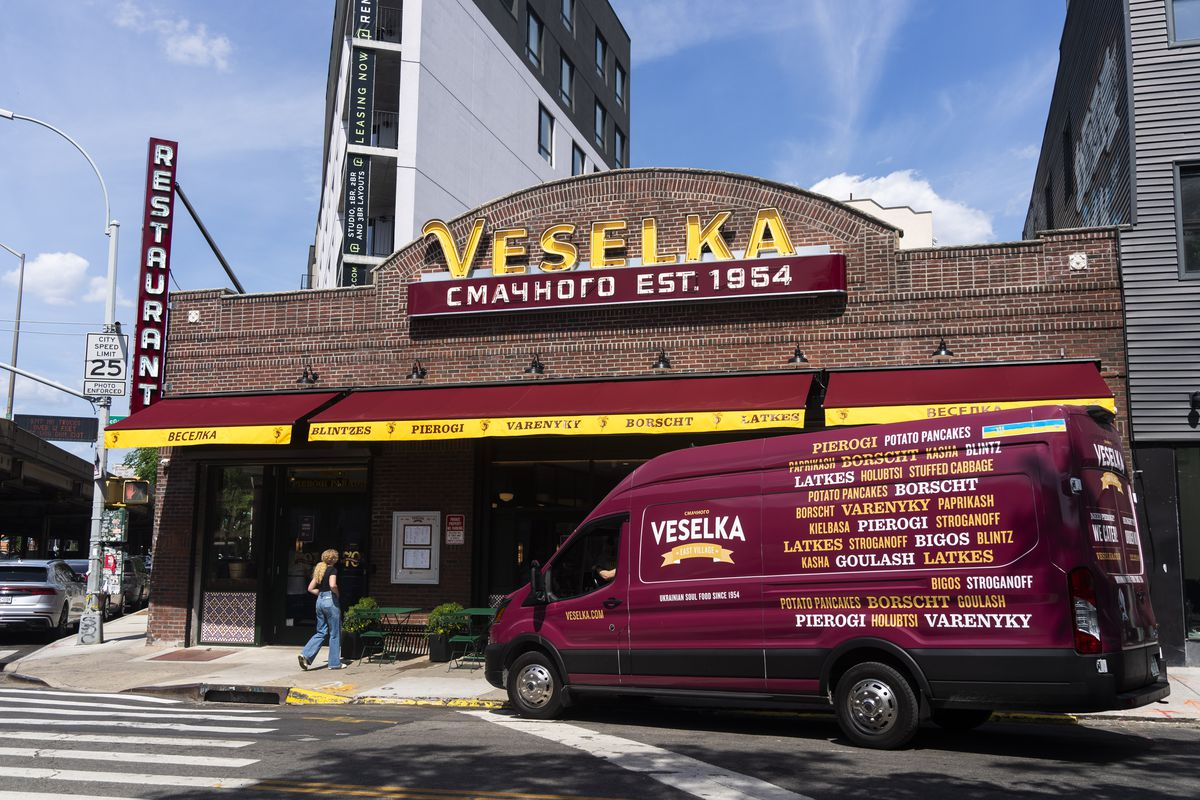Brooklyn Tech’s chapter of ASPIRA, an American Latino affinity organization, recently transformed into Unidos, a club dedicated to representing and supporting Latino students within the school. Unidos, led by Social Science Research major Clarissa Kunizaki (‘26), continues ASPIRA’s core principle with a more focused approach.
“We are going to be much more united and much louder,” explained Ms. Rivas, Unidos’ advisor. “Our presence is going to be known.”
By aiming to provide everyone with equitable opportunities to succeed, Unidos ensures students are empowered both inside and outside the classroom. While no longer part of the larger ASPIRA organization, Unidos (which translates to “united” in Spanish) maintains the goal of helping students thrive academically and socially.
“We are creating our own voices and our own path,” Rivas added.
The importance of this community is magnified by the changing demographics at Tech. During the 2021-2022 school year, Hispanic students made up only 7% of the student body. This number briefly rose to 7.5% during the 2022-2023 school year before dropping to 6.4% the following year, and declining to a mere 6.3% today.
Latino students at Tech often find themselves in isolating situations. Alumna Angelina Rodriguez (‘24) recounted a story of her first day at Tech when she noticed a significant lack of students who shared her background.
“I remember looking for people that either looked like me, had similar hair to me,” she explained. “It was only until I got to my last period [that] I found one Hispanic [person] in my class.”
Coming from a predominantly Latino middle school in the South Bronx, Industrial Design major Devin Rosas (‘25) felt a similar cultural shock.
“Where I used to live, it’s a lot of my [Hispanic] culture being represented throughout the neighborhood and throughout the school,” he noted. Rosas found this is not the case at Tech, where, despite a large student body from many different cultural backgrounds, the majority of them are white or Asian students.
In 1984, Black and Hispanic students outnumbered whites and Asians, making up 63.5% of the student body—a stark contrast to current demographics in which Black and Hispanic students make up 11.7% of the student body. Today, solidarity groups like Unidos aim to make the Tech community welcoming for Latino students. and raise their enrollment numbers to “previous levels,” which Maya Tello (‘24), the previous president of Tech’s chapter of ASPIRA, explained was a focus for the club under her leadership.
Unidos is also attempting to create systemic changes in the Tech community through Big Sibs, a club that aims to make the transition to Tech easier for incoming freshmen. “One of our future plans is really working to connect with freshmen and underclassmen,” Kunizaki explained, emphasizing the importance of having positive role models for Latino students.

Even with Unidos’ efforts to bring representation to Tech’s Latino community through support for incoming students, Tello explained that other concerns have been raised by members of the club.
At meetings, members often discuss the issue of microaggressions, which Tello explained come up “in places like [advisory classes, where] a lot of kids believe that [Latino students] got in solely because of the Discovery program.”
The Discovery program helps underprivileged students gain admission into specialized schools, and is not looked down upon by Unidos’ members, per se, but many find it offensive that their admission to Tech is discounted.
“These [stereotypes] are not true,” Tello emphasized. “We got in because we studied just as hard.”
On November 30th, 2023, a speakout—hosted by the Equity Team and ASPIRA—on the representation of the Latino community at Tech attempted to combat such stigma and promote education regarding the diverse cultures of the Latino community through the advisory curriculum and Spanish classes.
Mr. Adam Stevens, who teaches Black History 365 and previously served as ASPIRA’s advisor, is more concerned with what he believes is the root cause of the underrepresentation of Latino students at Tech—socioeconomic division. He explained that a school system as segregated as New York’s perpetuates inequality in education. “Separate can never be equal,” said Stevens.
Social Science Research major, Maggie Scarcos (‘26), echoed Stevens’ concerns, explaining what she believes further skews representation at Tech. “There aren’t enough affordable, accessible resources for [minorities],” she said.
Awareness of the Specialized High School Admissions Test (SHSAT) is lacking within minority communities, according to Rodriguez, who shared her story.
“I didn’t know what a specialized high school was until 8th grade, a month before the test, she recounted. “I didn’t know people actually [prepared] for this test.”
Even as the Discovery program offered 855 spots in 2023, only 20% went to Latino students, while nearly 60% of offers went to Asian Americans.
The National Institutes of Health emphasizes that economic and social conditions impacting a child’s performance are present in segregated neighborhoods—which then feed into segregated schools.
Stevens feels that pressure must be applied to the DOE to address this underlying problem. “We have to decide that the kind of excellence the college board has established is not the only kind of excellence that we care about,” he argued.

@bthsunidos Instagram
Although Unidos’ chapter at Tech cannot single-handedly bridge this divide, they can make progress within the school. Ms. Rivas has already observed significant growth.
“Our initial meeting [last year] we had three members, and now we had seven members show up,” she recounted, further attributing this progress to targeted outreach to freshmen members “[who] are feeling empowered now.”
As Unidos continues to evolve, its mission remains clear: to support and empower the Latino community at Tech, creating a safe space where students feel seen, heard, and valued.
“[Unidos] is not just for Latinos,” Rivas said, emphasizing the chapter’s inclusivity. “We welcome everyone who wants to join and celebrate culture.”
“We are proud of who we are, and want to work towards a better future,” Kunizaki added.








































